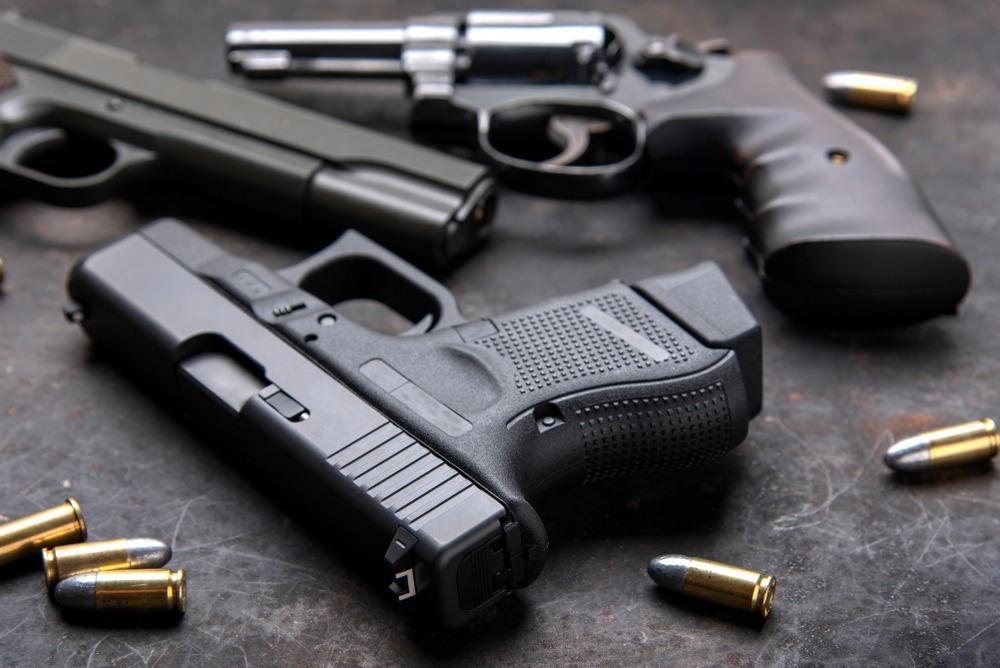Owning and possessing firearms in Pennsylvania comes with specific rights, responsibilities, and regulations. This guide provides a comprehensive overview of gun laws in Pennsylvania, covering various aspects such as purchasing, carrying, and storing firearms.
Introduction to Gun Laws in Pennsylvania:
Pennsylvania has a rich history of firearm ownership and a robust legal framework governing the possession, sale, and use of firearms. Understanding Pennsylvania’s gun laws is essential for residents and visitors alike to ensure compliance and responsible firearm ownership.
Firearm Ownership in Pennsylvania:
- Age Requirement: Individuals must be at least 18 years old to purchase a rifle or shotgun and 21 years old to purchase a handgun.
- Residency Requirement: There are no residency requirements for purchasing firearms in Pennsylvania.
- Background Checks: Background checks are required for all firearm purchases from licensed dealers, including handguns, rifles, and shotguns.
Purchasing Firearms in Pennsylvania:
- Licensed Dealers: Firearms can be purchased from licensed dealers, who are required to conduct background checks on buyers.
- Private Sales: Private sales of rifles and shotguns are legal in Pennsylvania without the need for background checks, although sellers are prohibited from knowingly selling to prohibited individuals.
- Handgun Sales: Private sales of handguns must be conducted through a licensed dealer, who will perform a background check on the buyer.
Firearm Carry Laws in Pennsylvania:
- Open Carry: Pennsylvania allows open carry of firearms without a permit for individuals who are legally allowed to possess firearms.
- Concealed Carry Permits: Residents can apply for a License to Carry Firearms (LTCF) for concealed carry, which requires a background check and completion of a firearms safety training course.
- Reciprocity: Pennsylvania recognizes concealed carry permits from many other states, allowing non-residents with valid permits to carry concealed firearms in the state.
Gun-Free Zones:
- Prohibited Locations: Certain locations, such as schools, courthouses, government buildings, and places of worship, are designated as gun-free zones where firearms are prohibited.
- Exceptions: There are exceptions for individuals with a valid LTCF or those authorized by law enforcement or security personnel.
Castle Doctrine and Stand Your Ground Laws:
- Castle Doctrine: Pennsylvania has a Castle Doctrine law, which allows individuals to use deadly force to defend themselves, their home, or their vehicle against intruders.
- Stand Your Ground: Pennsylvania does not have a specific Stand Your Ground law, but courts have recognized the right to use deadly force in self-defense without a duty to retreat in certain circumstances.
Storage and Transport of Firearms:
- Safe Storage: Pennsylvania does not have specific laws requiring firearms to be stored in a certain manner, but gun owners are encouraged to store firearms securely to prevent unauthorized access.
- Transportation: Firearms must be unloaded and stored in a closed container during transportation in a vehicle, except for individuals with a valid LTCF who may carry concealed firearms.
Prohibited Persons and Firearms:
- Categories of Prohibited Persons: Individuals prohibited from possessing firearms in Pennsylvania include convicted felons, individuals with certain misdemeanor convictions, those subject to protection from abuse orders, and those deemed mentally incompetent or involuntarily committed.
- Penalties: Possessing a firearm while prohibited is a serious offense in Pennsylvania, punishable by fines, imprisonment, and loss of firearm rights.
Reporting Lost or Stolen Firearms:
- Requirement: Pennsylvania law requires individuals to report lost or stolen firearms to law enforcement within 72 hours of discovery.
- Penalties: Failure to report lost or stolen firearms can result in penalties, including fines and potential liability if the firearm is used in a crime.
Firearm Registration:
- No Registration Requirement: Pennsylvania does not have a firearm registration requirement for most firearms, although certain cities may have local ordinances regarding registration.
- Background Checks: While there is no registration requirement, background checks are conducted for all firearm purchases from licensed dealers.
Legal Resources and Support:
- Legal Assistance: Individuals seeking clarification or assistance with Pennsylvania’s gun laws can consult with firearms attorneys or legal organizations specializing in Second Amendment rights.
- Government Resources: The Pennsylvania State Police website provides information and resources related to firearms laws, regulations, and permits.
Conclusion:
Understanding Gun In Pennsylvania laws is crucial for responsible firearm ownership and compliance with legal requirements. By familiarizing themselves with the regulations governing firearm purchase, possession, carry, storage, and use, individuals can exercise their Second Amendment rights while promoting public safety and accountability. Pennsylvania’s gun laws are designed to balance the rights of individuals to possess firearms with public safety considerations. By adhering to these laws and regulations, residents and visitors can enjoy their Second Amendment rights responsibly and lawfully.

